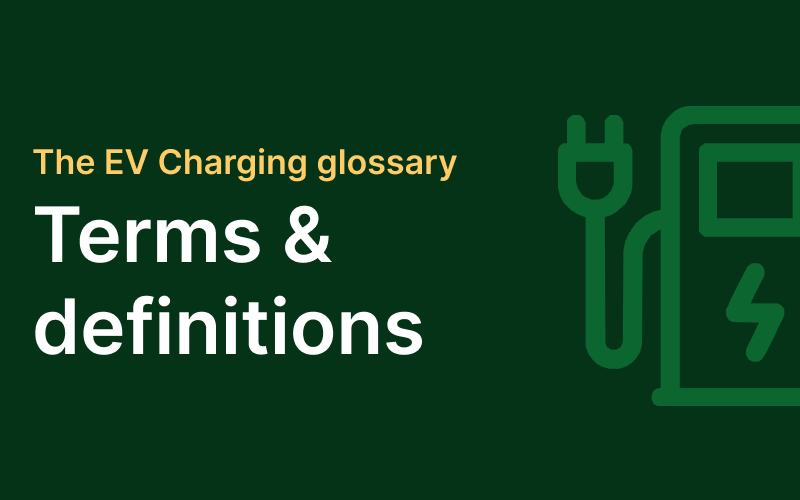The Ultimate EV Charging Industry glossary
Understanding the complex landscape of the electric vehicle (EV) industry can be daunting, especially with the constant evolution of terminology and technology. With so many acronyms and jargon, every EV professional needs a trustworthy resource to help them adapt. Print resources can quickly become outdated, as new terms are continuously introduced to describe innovative advancements and strategies.

Terms
Alternating Current Charging (AC Charging)
AC charging, or alternating current charging, is a method of recharging electric vehicles (EVs) where the alternating current supplied by the electrical grid is converted into direct current (DC) by the vehicle's onboard charger. This conversion is necessary as EV batteries store energy in DC form.
Alternative Fuels Infrastructure Directive (AFID)
The Alternative Fuels Infrastructure Directive (AFID) was a legislative framework established by the European Union (EU) in 2014 to promote the development and deployment of infrastructure for alternative fuels, including electricity, hydrogen, and natural gas. It aimed to support the integration of these fuels into the transport sector, facilitating the transition to low-emission and sustainable transportation. AFID preceded the more recent Alternative Fuels Infrastructure Regulation (AFIR).
Alternative Fuels Infrastructure Facility (AFIF)
The Alternative Fuels Infrastructure Facility (AFIF) is a funding mechanism established by the European Union (EU) to support the development and deployment of infrastructure for alternative fuels. It provides financial assistance for constructing recharging and refuelling stations for alternative fuels such as electricity, hydrogen, and liquefied natural gas (LNG), thereby facilitating the transition to low-emission and sustainable transportation.
Alternative Fuels Infrastructure Regulation (AFIR)
The Alternative Fuels Infrastructure Regulation (AFIR) is a legislative framework established by the European Union (EU) to promote and mandate the development of infrastructure for alternative fuels such as electricity, hydrogen, and liquefied methane. The regulation sets binding targets for EU Member States to ensure the availability and accessibility of recharging and refuelling stations for alternative fuel vehicles, supporting the transition to low-emission and sustainable transportation.
Battery Management System (BMS)
A Battery Management System (BMS) is an electronic system that manages and monitors the performance of a battery pack. It ensures the safety, efficiency, and longevity of the batteries by controlling the charging and discharging processes, monitoring the state of charge (SoC) and state of health (SoH), and balancing the cells within the battery pack.
Bidirectional Charging
Bidirectional charging is a technology that allows electric vehicles (EVs) to both draw power from the grid to charge their batteries and discharge electricity back into the grid or other devices. This dual capability is enabled by bidirectional chargers, which manage the flow of electricity in both directions.
